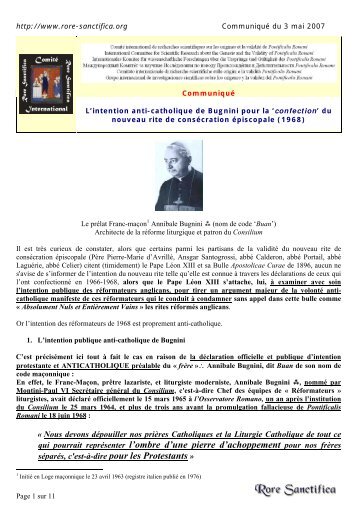Caeremoniale Episcoporum Pdf Creator

[PDF] ceremonial of bishops pdf (28 pages) - tilm 224 tli, mexican bishops plead for peace call violence a national, monroeville elementary school building sold to diocese, teika lle sikaiana archives, simboli cresima per inviti fai da te blogmamma it.
( Missa votiva ) A offered for a votum, a special intention. So we frequently find in the expression, votiva dona (e.g., in the Leonine Sacramentary, ed.
103), meaning 'gifts offered with desire [of receiving in return]'. The does not correspond to the for the day on which it is celebrated.
Every day in the year has appointed to it a series of and (except ) a corresponding, containing, for instance, the same and the same Gospel. Html Email Templates For Whmcs Demo here. So and Office together make up one whole.
Normally the corresponds to the Office. But there are occasions on which a may be said which does not so correspond.
These are votive Masses. The principle of the votive is older than its name.
Almost at the very origin of the Western liturgies (with their principle of change according to the Calendar) was occasionally offered, apparently with special and lessons, for some particular intention, irrespective of the normal Office of the day. Among the miracles quoted by St. Augustine in 'De civ. Dei', XXII, 8, is the story of one Hesperius cured of an by a private said in his house with special for him -- a votive for his cure. The first Sacramentaries contain many examples of what we should call votive Masses.
So the Leonine book has Masses 'in natale episcoporum' (ed. 123-26), 'de siccitate temporis' (ibid., 142), 'contra impetitores' (ibid., 27), and so on throughout. Indeed the Masses for ordination and for the dead, which occur in this book and throughout the Roman and Gallican Rites, are really examples of votive Masses for all kinds of occasions, for ordinations (ed. 22-30, etc.), for those about to be baptized (ibid., 34), anniversaries of ordinations (153-54), (156), for the sick (282), for marriages (265), (276), travellers (283), the dead (301 sq.), and a large collection of Masses of general to be said on any (224-44). In this book the name first occurs, 'Missa votiva in sanctorum commemoratione' (p. 367; Rheinau and S. The Gregorian Sacramentary, too, has a large collection of such Masses and the name 'Missa votiva' (e.g., P.L., LXXVIII, 256).
So all through the the votive was a regular institution. The principle came to be that, whereas one official (capitular) high was said corresponding to the Office, a who said a private for a special said a votive corresponding to his intention. The great number of forms provided in medieval Missals furnished one for any possible intention. Indeed it seems that at one a normally said a votive whenever he celebrated. Beleth in the thirteenth century describes a series of votive Masses once said ( fuit quoddam tempus ) each day in the week: on Sunday, of the Holy Trinity; Monday, for charity; Tuesday, for wisdom; Wednesday, of the; Thursday, of the; Friday, of the Cross; Saturday, of the Blessed Virgin (Explic. This completely ignores the ecclesiastical year. But there was a general sentiment that, at least on the chief feasts, even private Masses should conform to the Office of the day.
It is well known, for instance, that our feast of the Holy Trinity began as a votive to be said on any after Pentecost, when there was no feast. This of allowing votive Masses to be said only when no special faest occurs finally produced the rules contained in our present (1570). According to these we distinguish between votive Masses strictly so called and votive Masses in a wider sense. The first are those commanded to be said on certain days; the second kind, those which a may say or not, at his discretion. Strict votive Masses are, first, those ordered by the of the Missal, namely a of the Blessed Virgin on every Saturday in the year not occupied by a double, semi-double, octave, vigil, of Lent, or ember-day, or the transferred Office (Rubr.
Gen., IV, 1). This is the 'Missa de S.
Maria' in five forms for various seasons, among the votive Masses at the end of the Missal. To this we must add votive Masses ordered by the pope or the for certain grave occasions ( pro re gravi ). Such are for the of a pope or bishop, in of war, plague, persecution, and so on. Such votive Masses may be ordered by the on all days except doubles of the first or second class, Ash Wednesday, and the ferias of Holy Week, the eves of and Pentecost; except also days on which the office is said for the same or event as would be prescribed by the votive Mass. In this case the should conform to the office as usual. A third kind of strictly votive is that said during the devotion of the so-called 'Forty Hours'. On this occasion the on the first and third days is of the Blessed Sacrament; on the second day it is for peace.
Comments are closed.